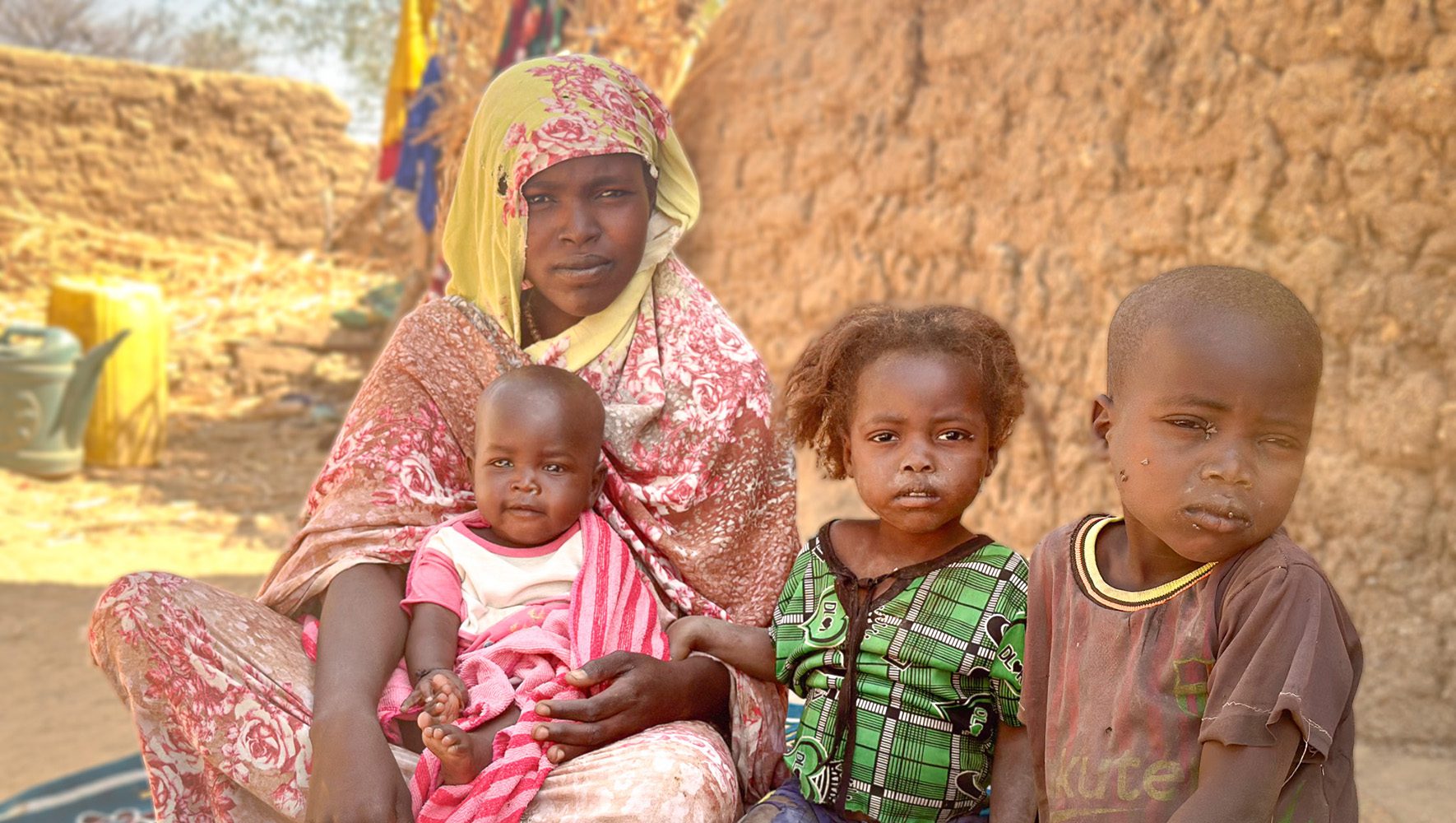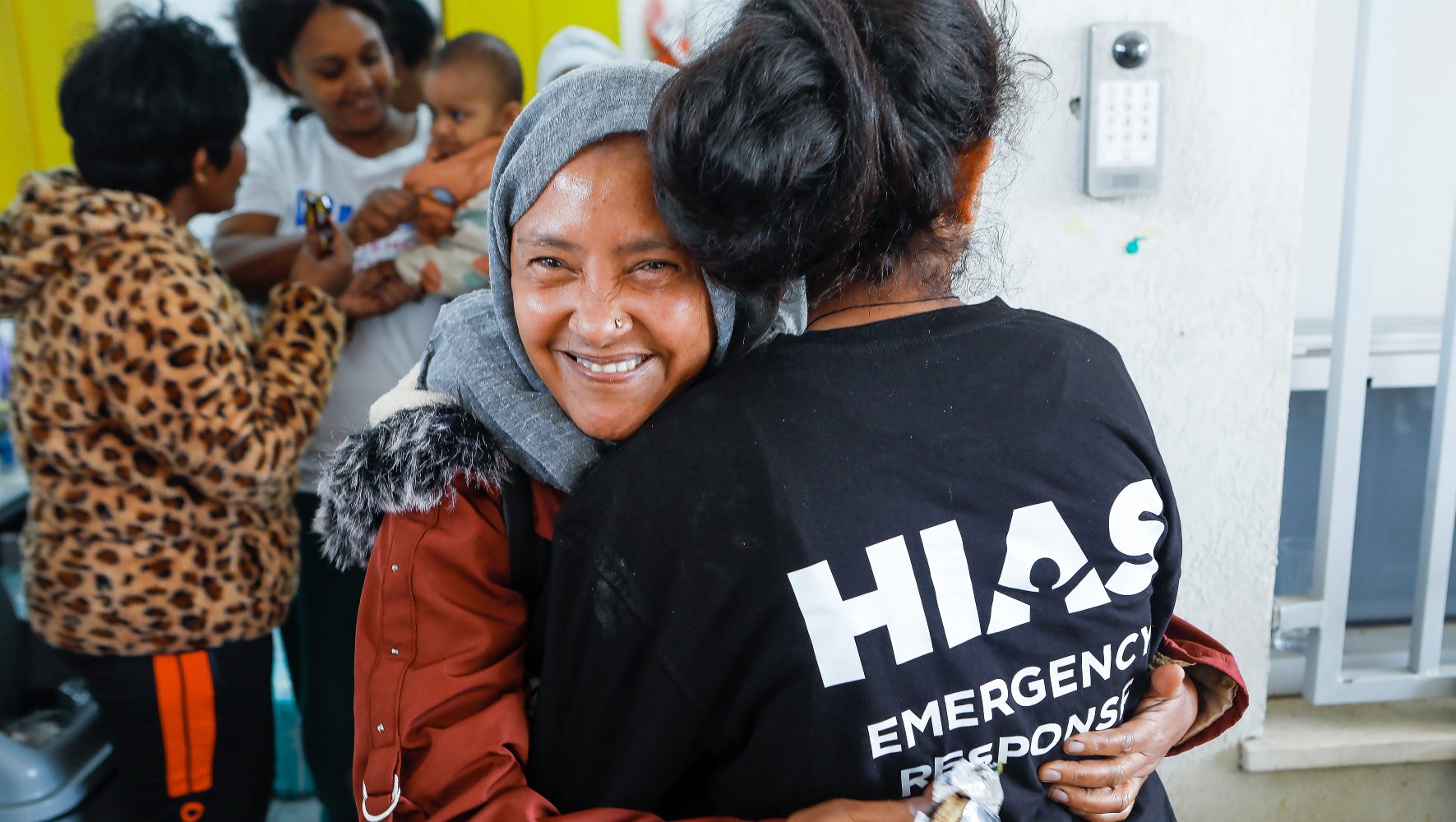Responding to the Prime Minister’s Office on African Asylum Seekers
Feb 14, 2018
The Prime Minister’s Office recently distributed an extensive set of messaging points regarding the government’s plans to force tens of thousands of African asylum seekers living in Israel to make the impossible choice of facing imprisonment or relocate to Rwanda or Uganda. The Israeli Foreign Ministry sent the points out widely in a variety of formats throughout the American Jewish community, including as a letter from the Israeli embassy. As part of the effort to provide additional context and accuracy to the points distributed, HIAS has compiled the following document separating myth from fact.
Facts on the Ground
- Israel is currently home to approximately 37,000 asylum seekers from Africa, all of whom entered the country through the Sinai desert between the years 2005-2012. 20 percent of them arrived from Sudan (mainly from Darfur) and 72% from Eritrea. Many of these refugees are fleeing forced military service or genocide.
- During 2017, not a single Eritrean or Sudanese asylum seeker is known to have entered Israel.
- Israel has maintained an asylum system which falls far short of global standards, with an approval rate of less than 1%. In other developed countries, the percentage of recognition in 2016 was 90% for Eritreans and 57.4% for Sudanese.
- Israel has granted refugee status to only 10 Eritreans and one Sudanese individual throughout the last decade.
- In addition to granting asylum to very few people, Israel has made the asylum system very difficult to access. No official message was ever given to the communities that they needed to apply for asylum within a year of arrival. The extremely long lines outside of the asylum office, limited opening hours, and huge backlogs have turned the task of filing a claim into a nearly impossible feat. Many of those who did file refugee claims were rejected out of hand in a fast-track procedure that was later found by the court to be flawed. As a result very few were recognized by the system as refugees.
- African asylum seekers are less than a quarter of the total number of foreigners in Israel, which include 88,000 migrant workers brought into the country to work, 18,000 migrant workers with expired work permits, and 74,000 people with invalid tourist visas.
- The Government of Israel often refers to the asylum seekers as "economic migrants," rather than refugees or asylum seekers. The law defines them as "infiltrators" because they did not enter through a recognized border crossing.
- At the same time, Israel does not deport Eritrean and Sudanese asylum seekers back to their countries of origin, recognizing the poor human rights records and danger that awaits them there.
- A fair, effective asylum system is usually able to identify refugees in need of protection as opposed to economic migrants, or migrants who do not meet the definition of "refugee" under the 1951 Refugee Convention. The Israeli asylum system is not functioning properly and is not able to produce a clear picture of this distinction.
- On January 1st 2018, the Ministry of Interior announced a plan to forcibly transfer asylum seekers to third countries. According to the procedure, beginning on February 1st, 2018, every asylum seeker who arrives to renew his visa, and who does not fall into a stated excluded category (including women, children, men with families, and those whose asylum cases are still pending), will be notified that he must depart Israel within 60 days.
- Testimonies of people who were relocated by Israel to third countries in Africa indicate that they did not find durable protection there and risked their lives by taking dangerous onward journeys through conflict zones in South Sudan, Sudan and Libya to seek protection elsewhere. Some have drowned at sea en route to Europe, while others were reportedly detained, tortured and extorted by human traffickers. Additionally, 25 Israeli international law experts found that Rwanda does not fit the criteria of a 'safe country' according to the standards set by the attorney general.
Impacted Population
- For more than a decade, asylum seekers in Israel have been living with very limited rights: no work permit, no social rights, no health insurance and no certainty. In addition, the government is deducting 20% of the net salary of all Eritrean and Sudanese to a special deposit that they can receive only when leaving the country. That is on top of the 16% that their employer must deposit.1
- While it is true that only around 20% of the African asylum seekers in Israel are women, nowhere does the Refugee Convention imply that a country may substitute demographic analysis for fair and transparent case-by-case refugee status determinations. Fears related to the high risk of sexual violence and trafficking of women and children in the trek across Africa and, in particular, across the Sinai, likely contribute to the demographic disparity. Additionally, men are often the most at-risk in Sudan and Eritrea.
- Asylum seekers work mostly in jobs that Israelis did not occupy before. Many of the asylum seekers work in the hotel and industrial sectors in jobs, which Israelis have been avoiding for many years. In fact, employers in these sectors had, and still have, shortages in manpower, and any Israeli who would like to work in that sector could easily find work there. The same can be said about the agriculture and construction sectors, in which some asylum seekers work.
Israel’s Legal Obligations
- According to the Refugee Convention, a refugee may be removed to a safe third country where he or she can enjoy “effective protection.” In the case of Rwanda and Uganda, these two governments have publicly denied the very existence of any agreement to receive migrants from Israel, and have not accorded any of the asylum seekers sent there with any legal status.
Recommendations
Israel must act in accordance with international law, and with our shared Jewish values and tradition. As a country founded as a refuge for those fleeing persecution, Israel must protect refugees who are seeking safety and a chance at a new life. Until a fair and transparent asylum process finds otherwise, the Israeli government should call these individuals what they are—asylum seekers. In the meantime, they should also:
- Suspend or repeal the planned deportations.
- “Establish a just, fair, and effective refugee status determination process so that refugee claims can be made to begin with, processed in a timely and fair manner, and where just determination can be made in accordance with international standards.”2
- Ensure that refugees and asylum seekers only return to their home countries, or third countries, when they can do so voluntarily and in safety and dignity.
- Employ the strategic use of resettlement: Encourage resettlement countries to assist Israel by accepting refugees with links to those countries, or who remain particularly vulnerable in Israel.
- Urge Israel to ensure that those who remain in Israel are given asylum or some other humanitarian status with full economic and social rights.
Additional Resources
HIAS Backgrounder on African Asylum Seekers in Israel
Hotline for Refugees and Migrants Point by Point Response to PMO Messaging
Right Now Talking Points on African Asylum Seekers and Refugees in Israel
"Israel’s African asylum seekers: What needs to be done," by Irwin Cotler in The Times of Israel


